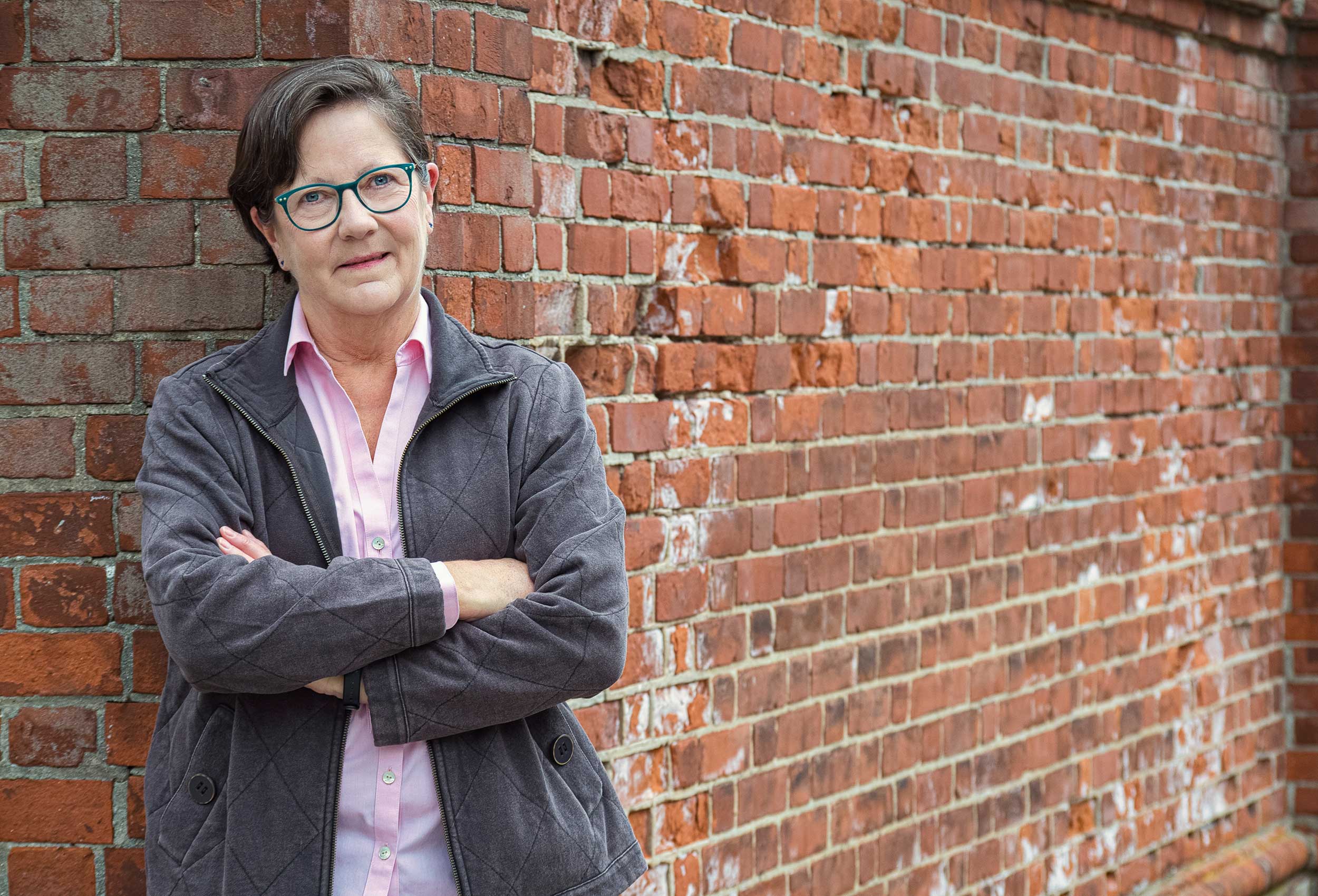
Professor of Communication Studies Kathleen Torrens
Kathleen Torrens, 2020 winner of the URI Foundation and Alumni Engagement Excellence in Teaching Award, believes civic engagement begins with critical thinking.
And a discussion of rhetoric turns to corsets. Yes, you read that right.
Kathleen Torrens’ interest in public discourse goes back to her dissertation on the 19th-century dress reform movement, when women’s interest in freeing themselves from corsets, as well as petticoats, hoops, chemises, and bustles intertwined with the movements for suffrage, abolition, temperance, and more.
“The 19th-century dress reform movement involved this intersection of all kinds of activism and the different ways that 19th-century women advocated for themselves. I read reports of women who put down the corset and recounted how frightening it was: their fear of retribution, their families were upset,” says Torrens, a professor of communication studies in the Harrington School of Communication and Media. “At the time, it was clear that wearing bloomers was a form of protest, argument, and advocacy.
“I think my interest in social movements and discourse arose from that. I’ve worked that into my teaching, whether it’s a social movements class or my multicultural voices class,” Torrens continues. “One of the things that came out of my work was that people suffered so that we don’t have to wear things like corsets, which symbolize social control and oppression.
“And so that we can vote and own property.”
On equity and online education
Given her interest in advocacy, it is not surprising that Torrens is also interested in the potential online learning poses to democratize education, provided needs around access, affordability, and equity are met. COVID-19 accelerated the adoption of online instruction at URI and across the country, and inequities were apparent, she notes.
“I’m hearing students saying, ‘I do my work on my phone because the WIFI in the house is bad, or, my house is overcrowded.’ And I realize that the bulk of students at URI are privileged, and yet there’s a great number who are not.
“That was eye-opening.”
And there is responsibility to be shared by faculty and students. “Online learning is an amazing tool for getting students involved in their own learning, but that requires training students to get involved in their own learning in a way that they’re not used to,” Torrens explains. “Learning is engagement, and I feel it is incumbent on us as instructors to learn how to best engage our learners.”
And how we educate an informed citizenry
Apart from course content and its mode of delivery, Torrens wants something more for her students: discernment.
“In my courses, students explore their interests so that they exercise their power as critical consumers of culture and become aware that they are being bombarded every second of every day by people wanting to change their minds or behavior,” Torrens says. “Over time, my teaching has become less about content and more about critical thinking, problem-solving, and finding enjoyment in learning.
“I want my students to ask questions and to answer questions. I want them to have an appreciation for education as a process and an appreciation of community,” Torrens explains. “I want them to be citizen-participants.
“If you’re going to be a participant, you are more likely to be an advocate.”

